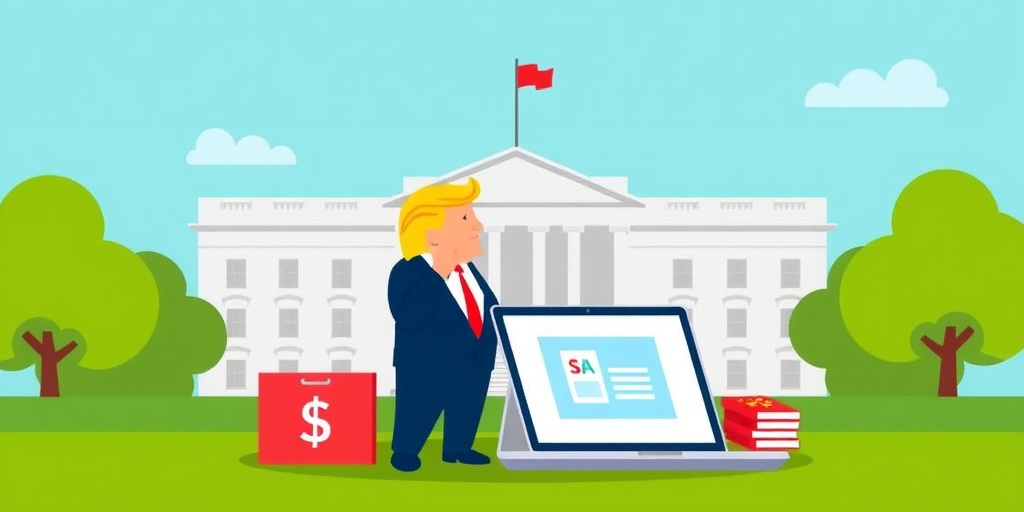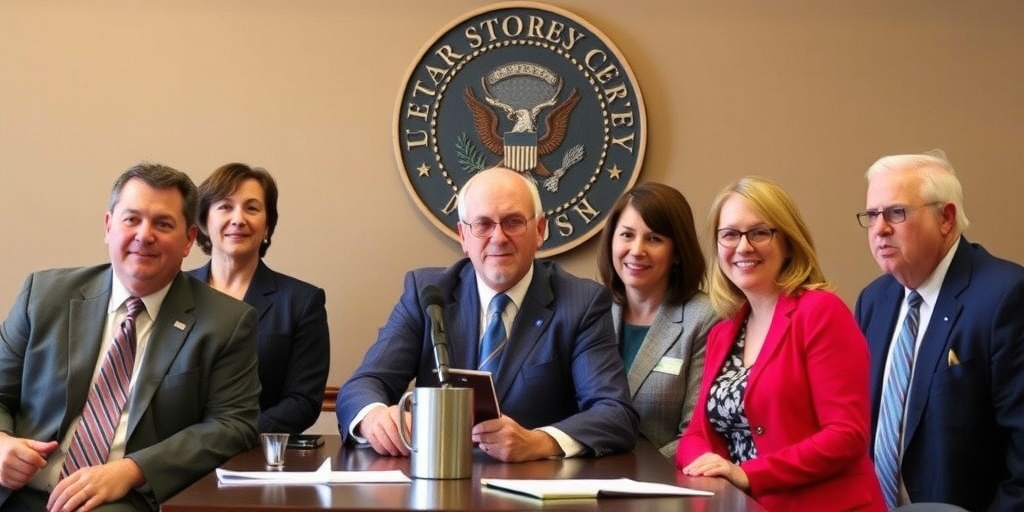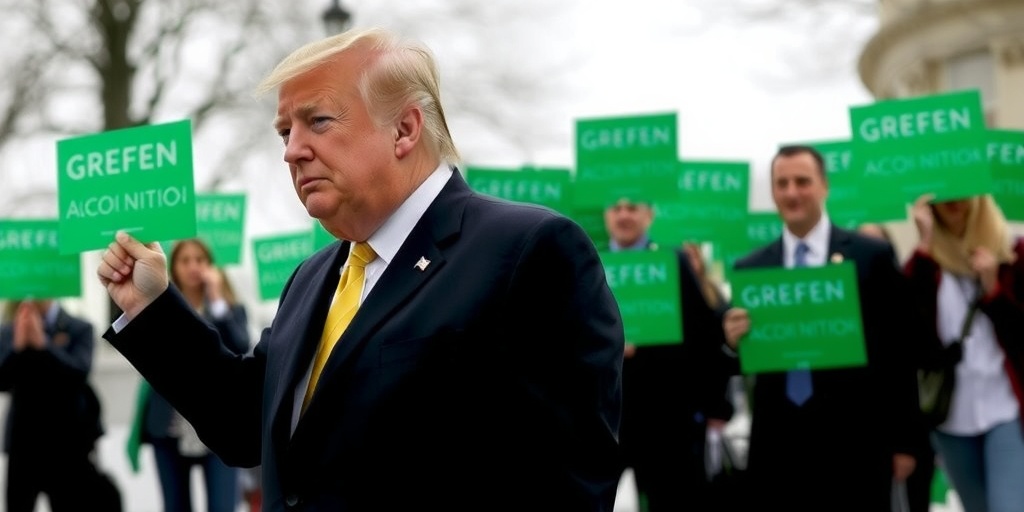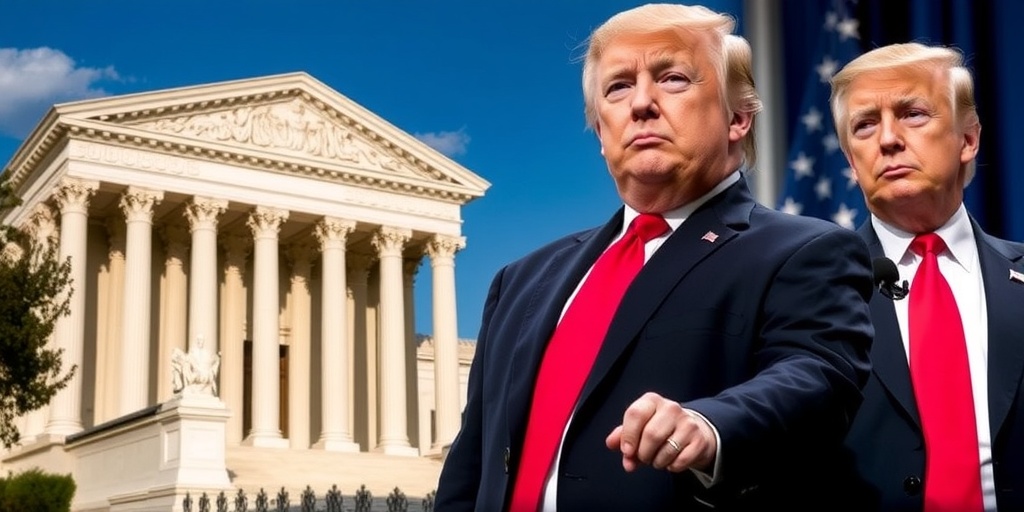Now Reading: Trump’s De Minimis Order Set to Disrupt E-Commerce
-
01
Trump’s De Minimis Order Set to Disrupt E-Commerce
Trump’s De Minimis Order Set to Disrupt E-Commerce

Trump Orders Closure of De Minimis Exemption for Chinese Goods to Combat Tariff Evasion and Drug Smuggling
On Wednesday, President Trump announced a significant policy change aimed at curbing tariff evasion and combating drug smuggling, specifically targeting the de minimis exemption that currently allows U.S. consumers to receive goods valued under $800 from China without incurring tariffs. This exemption, which facilitates ease of trade for numerous small shipments, is set to be abolished starting May 2.
The de minimis exemption has been a crucial point of discussion among lawmakers and trade experts alike, as it provides retailers a means to send merchandise directly to American consumers with minimal customs obligations. By dismantling this loophole, shipments valued below the $800 threshold from China—the largest contributor to this trade category—will now be subject to typical tariff revenues. This move is part of a broader effort by the Trump administration to address issues beyond just tariff collection; it also aims to thwart illicit activities, particularly drug trafficking.
In his order, Trump highlighted concerns surrounding the shipment of fentanyl and its precursor chemicals, which he claims are sometimes delivered to the United States using deceptive shipping practices tied to the de minimis exemption. “Shippers in China hide illicit substances and conceal the true contents of shipments sent to the United States,” the order states. As a result, Customs and Border Protection (CBP) is tasked with implementing the new regulations and collecting associated tariff revenues.
Reactions from lawmakers have been mixed. A bipartisan group has previously expressed the need for reform concerning the de minimis provision. Representative Linda Sánchez, a Democrat from California, criticized Trump’s order for not extending beyond Chinese imports. "Otherwise, we’ll be playing a game of Whac-a-Mole, as bad actors and fentanyl smugglers simply relocate their operations to other countries to continue exploiting the loophole," she stated.
Similarly, Representative Rosa DeLauro, a Democrat from Connecticut, condemned the loophole, accusing it of flooding the market with cheap imported goods while allowing drug traffickers to transport fentanyl across U.S. borders. The National Council of Textile Organizations, which represents American manufacturers, applauded Trump’s move but urged that the exemption be abolished for all imported goods, not just those from China.
However, experts warn that the elimination of the de minimis exemption may lead to increased costs for American consumers, with research suggesting that its complete removal could result in an estimated annual burden between $11 billion and $13 billion. This financial pressure is expected to be felt most acutely by lower-income families, raising doubts about the long-term viability of Trump’s decision among a consumer base already grappling with economic challenges. "This is not going to be popular with a lot of Americans," claimed Clark Packard, a research fellow at the Cato Institute, which generally advocates for free trade policies.
Packard also raised questions about the efficacy of closing the loophole in combating drug trafficking, arguing that customs officials effectively screen parcels entering the U.S., including de minimis shipments. He suggested that increasing paperwork may detract from the CBP’s ability to identify and intercept illegal drug trafficking. Nonetheless, Hilton Beckham, assistant commissioner at CBP, responded affirmatively, stating that their automated systems are prepared to manage new tariff assessments while ensuring uniform enforcement across the country.
The fast-fashion retailer Shein, known for shipping products directly from China, along with other brands like Temu, have recently gained popularity. According to Sheng Lu, a professor of apparel business at the University of Delaware, these companies have also begun diversifying by partnering with U.S. sellers and establishing domestic warehouses, potentially lessening the impact of Trump’s new order. "There’s no realistic alternative for them to make their products," Lu remarked, commenting on Shein’s reliance on Chinese manufacturing.
Experts predict that the policy will adjust business paradigms rather than eliminate companies altogether. “This is not going to kill them off by any means,” said Aaron Rubin, CEO of ShipHero, a warehouse management software firm.
While larger companies might adapt to these changes, the ramifications for small and medium-sized U.S. retailers that depend on the de minimis exemption could be severe. The additional costs associated with tariffs might push these businesses to the brink of closure, especially if customers resist paying higher prices or face delayed deliveries.
This is not the first time Trump has attempted to address the de minimis loophole; he had previously ordered its end in February, only to reinstate it shortly thereafter. Concerns over the efficiency of processing packages had arisen during that brief closure, and logistics experts caution that similar logjams could occur once the new order takes effect.
In closing, while the administration aims to fortify enforcement against tariff evasion and drug smuggling, the potential financial impact on American consumers and small businesses raises significant questions about the balance between trade policy and its economic consequences. Trump has requested an evaluation from the commerce secretary on the order’s effects within 90 days, as stakeholders across the spectrum watch closely.
Stay Informed With the Latest & Most Important News
Previous Post
Next Post
-
 01New technology breakthrough has everyone talking right now
01New technology breakthrough has everyone talking right now -
 02Unbelievable life hack everyone needs to try today
02Unbelievable life hack everyone needs to try today -
 03Fascinating discovery found buried deep beneath the ocean
03Fascinating discovery found buried deep beneath the ocean -
 04Man invents genius device that solves everyday problems
04Man invents genius device that solves everyday problems -
 05Shocking discovery that changes what we know forever
05Shocking discovery that changes what we know forever -
 06Internet goes wild over celebrity’s unexpected fashion choice
06Internet goes wild over celebrity’s unexpected fashion choice -
 07Rare animal sighting stuns scientists and wildlife lovers
07Rare animal sighting stuns scientists and wildlife lovers




















